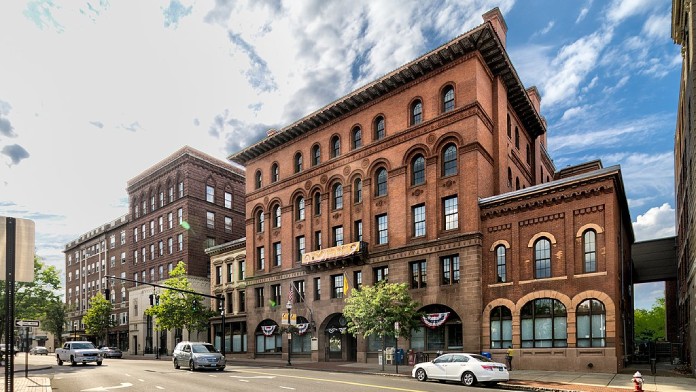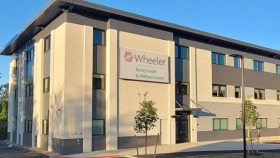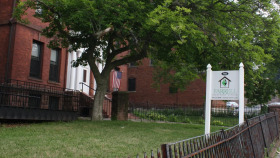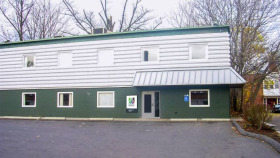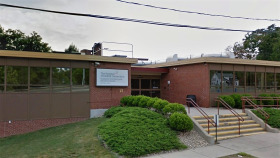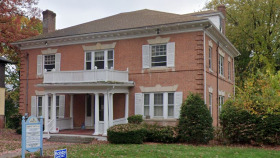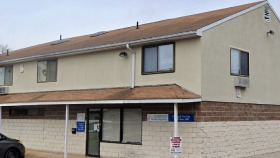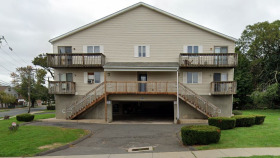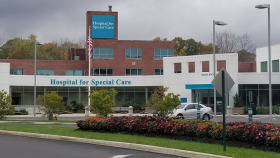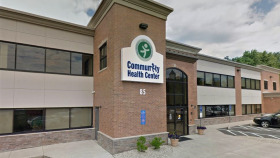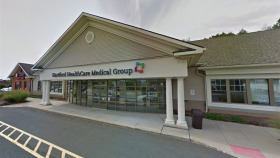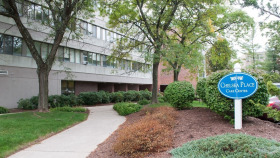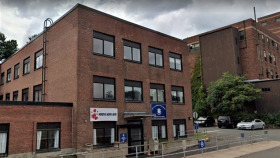Substance Abuse Statistics in New Britain, CT
Drug overdose deaths have been on the rise in New Britain. Here are some statistics showing the impact of drug and alcohol misuse in New Britain and Hartford County:1,3,4
Hartford County reported 391 drug overdose deaths in 2021.
Levels of Substance Abuse Care
Various levels of addiction treatment are available to meet different needs. Some Connecticut residents start with inpatient treatment and work their way through the continuum of care, while others begin their recovery at a less-intensive level.
Medical Detox
Detox is often a first necessary step before you can begin other formal treatment programs. It is the process of safely and comfortably removing drugs or alcohol from your system. It occurs in a supervised setting, such as a hospital or inpatient rehab facility.
Inpatient Drug and Alcohol Rehab
During residential treatment, you live at a rehab facility and receive 24/7 supervised care. Treatments typically include individual and group therapy, as well as medication and recreational therapy.
Partial hospitalization programs (PHPs)
PHPs allow you to receive treatment at a hospital while living at home. Services are similar to inpatient programs, but you return home during non-treatment times.
Intensive Outpatient Programs (IOPs)
IOPs allow you to attend counseling several days each week while spending the rest of your time fulfilling other obligations such as work or school.
Standard Outpatient
Standard outpatient is the least intensive treatment option. It involves one to two hours of treatment per week. This low-supervision level is appropriate for highly motivated people with a strong support system.
Relapse Prevention
Relapse prevention, also referred to as aftercare, begins once you complete a rehab program. It includes ongoing support through continued therapy, support groups, and other care programs.
How to Pay for Substance Addiction Treatment in New Britain, Connecticut
Private Insurance
The Mental Health Parity and Addiction Equity Act requires all insurance providers to cover substance abuse treatment to some extent. Connecticut residents should contact their provider to learn about specific coverage, including required copays or deductibles.
Connecticut Medicaid
Medicaid is a government program that pays for health services for low-income individuals. The Medicaid programs in Connecticut are HUSKY A, HUSKY C, and HUSKY D. Children and their caregivers with a family income of less than 185% of the poverty level, as well as pregnant women whose income is less than 250% of the poverty level are eligible for HUSKY A. Individuals who are aged, blind, or disabled may be eligible for HUSKY C. Single adults whose income is below 56% of the federal poverty level may qualify for HUSKY D.2 Under these programs, Connecticut residents can receive coverage to pay for substance abuse treatment services.
Connecticut Medicare
Connecticut Medicare is the federal health insurance program that provides coverage for Connecticut residents who are 65 and older and for certain disabled residents. If you are eligible for Railroad Retirement or Social Security benefits, you qualify for Medicare. You can use this program to cover the cost of addiction treatment services, however, not all rehab facilities accept this method of payment.
Sliding Scale Rehabs
Sliding scale rehabs charge each Connecticut resident what they can afford based on their income. Proof of income is usually required to qualify. These options are not always advertised, so it’s important to inquire about them.
TRICARE in Connecticut
Connecticut TRICARE (East region) is a government program that offers health insurance coverage to military personnel, veterans, and their dependents. TRICARE coverage includes addiction treatment services, such as rehab and medication-assisted treatment.
IHS-Funded Drug Rehabs
Drug rehab services funded by the Indian Health Service provide free addiction treatment to Alaskan Natives and Indigenous people in the U.S.
Local Information for New Britain, CT
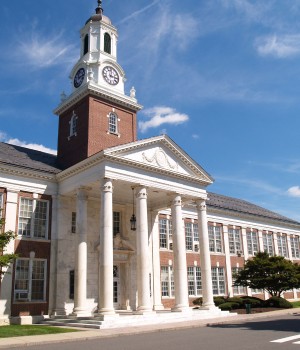 You may be coming to New Britain for drug or alcohol rehab, or perhaps you’re visiting someone receiving addiction treatment at a New Britain drug or alcohol rehab. Before you travel to New Britain, here are some helpful tips about the area and the best ways to get around town.
You may be coming to New Britain for drug or alcohol rehab, or perhaps you’re visiting someone receiving addiction treatment at a New Britain drug or alcohol rehab. Before you travel to New Britain, here are some helpful tips about the area and the best ways to get around town.
- New Britain is just a short 16-minute drive from Hartford, the state’s capital city.
- Downtown New Britain is the southern end of CTfastrak, a bus rapid transit line. CTfastrak is the state’s bus rapid transport that offers point-to-point service to destinations between New Britain and Hartford. In addition to downtown, you can find stations on East Main Street and East Street near Central Connecticut State University.
- Route 9 is the city’s main expressway connecting you to Hartford via I-84.
- The closest Amtrak station is in nearby Berlin.
- Uber and Lyft are also available to help you get around town.
- Bradley International Airport in Windsor Locks is the closest major commercial airport to New Berlin and is about a 27-mile drive.
- New Berlin is the home of the New Britain Bees, a Double-A baseball team
- The city features the Museum of American Art, the Industrial Museum, the Youth Museum, and the Hungerford Nature Center.
- Enjoy musical entertainment from the New Britain Symphony.
- Visit Walnut Hill Park and the Walnut Hill Rose Garden. Walnut Hill Park was designed by Frederick Law Olmsted, who also designed Central Park in New York City.
Connecticut Alcohol and Drug Laws
Connecticut policy makers have passed the following laws to govern substance use and abuse and protect its citizens:1
Naloxone Access: In 2018, Connecticut lawmakers increased access to Naloxone (an opioid overdose antidote). Pharmacists and practitioners in Connecticut can distribute this medication to public organizations and provide it to people without a prescription. The end goal is to prevent deaths from overdose.
Good Samaritan Laws: These laws protect Connecticut residents who seek or receive emergency medical care for an overdose. It gives them immunity from legal repercussions for the use or possession of illegal substances, to encourage them to call emergency services in the event of a possible overdose.
Health Insurance Laws: As of 2017, Connecticut law requires most group and individual insurance policies to provide medically necessary detox and other recovery services to those who are diagnosed with substance use disorder. The laws also prohibit insurance policies from requiring prior authorization for opioid antagonists.
Limits on Opioid Drug Prescriptions: Since 2017, Connecticut lawmakers have passed laws to reduce the maximum quantity of opioids that can be prescribed to minors. The laws also increase the amount of education provided to patients about opioid risks.
Resources
- Connecticut Department of Public Health. (2022). Drug overdose deaths in Connecticut data dashboard, 2015 to 2022.
- City of New Britain. (n.d.). Opioid Epidemic Information.
- Connecticut Data Collaborative. (n.d.). Data by Topic.
- Connecticut Department of Mental Health and Addiction Services. (2020). Annual statistical report.

